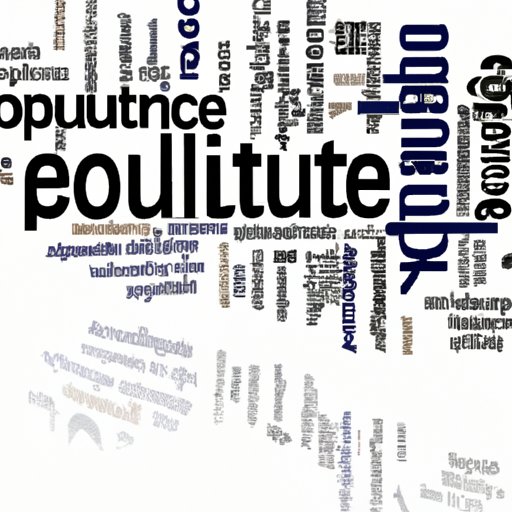Introduction
Popular culture is a broad term that refers to the shared experiences, beliefs, values, customs, norms, and practices of a particular group of people. It encompasses everything from the latest trends in fashion and technology to the most widely-watched television shows and movies. Popular culture has a profound impact on society, influencing not only what people think and do, but also how they interact with each other and see the world. In this article, we’ll explore the importance of popular culture and its impact on society.

Explore the Impact of Popular Culture on Society
Popular culture has the power to shape and reflect values, influence consumer behavior, and even affect identity formation. Let’s take a closer look at each of these areas.
Analyze How Popular Culture Reflects and Shapes Values
Popular culture often reflects the values of a particular society or culture. For example, the way people dress can be seen as a reflection of their values. If a person chooses to wear revealing clothing, for instance, this may be interpreted as a sign that they value freedom of expression. Similarly, if a person chooses to dress more conservatively, this could be taken as a sign that they value modesty and respectability.
Popular culture also has the power to shape values. Through media such as television and film, people are exposed to new ideas and perspectives that can challenge existing values and beliefs. This can have a positive effect on society by helping to promote acceptance and tolerance of different cultures and lifestyles. It can also have a negative effect, however, by reinforcing existing stereotypes and prejudices.
Examine the Influence of Popular Culture on Consumer Behaviors
Popular culture also plays an important role in influencing consumer behaviors. For example, celebrities and other public figures often endorse products and services, which can have a significant impact on people’s purchasing decisions. People may be more likely to buy a product if they know that a celebrity or other figure they admire uses or endorses it.
Advertising campaigns can also have a powerful influence on consumer behaviors. By creating clever and memorable slogans, images, and stories, advertisers can persuade people to purchase their products and services. As a result, people may be more likely to buy something simply because of its popularity, rather than because of its actual quality.

Look at How Popular Culture Affects Identity Formation
Popular culture can also have a huge impact on identity formation. For many people, popular culture provides a way to express themselves and connect with others who share similar interests. Through TV shows, movies, music, and other forms of media, people can find communities of like-minded individuals and form meaningful relationships.
Popular culture can also influence political attitudes. Media, such as news programs and talk shows, can shape people’s opinions and views on certain issues. This can have a significant impact on how people vote and the policies they support.
In addition, popular culture has had a major influence on art and music throughout history. Many famous works of art and music were created in response to popular culture trends. From Andy Warhol’s Pop Art to rap music, popular culture has played an important role in inspiring creativity and shaping the direction of art and music.
Assess the Effects of Popular Culture on Education
Finally, let’s take a look at how popular culture affects education. Popular culture can have both positive and negative impacts on learning. On the one hand, popular culture can provide students with engaging and entertaining ways to learn. For example, students may be more motivated to learn when they are exposed to popular culture references in their lessons. On the other hand, too much exposure to popular culture can be distracting and lead to lower academic performance.
In addition, popular culture can shape the way people view education. For instance, popular culture may portray certain educational institutions or fields of study as more desirable than others, leading people to pursue certain types of education over others. Similarly, popular culture can shape people’s attitudes towards education, influencing whether they view it as an important part of life or as a waste of time.
Conclusion
In conclusion, popular culture is an important part of our society. It has the power to shape and reflect values, influence consumer behaviors, and affect identity formation. Additionally, popular culture can have a significant impact on education, both positively and negatively. It is important to recognize the power of popular culture and its potential to both enrich and harm our lives.
To better understand the influence of popular culture, further research is needed. Studies should focus on exploring how popular culture affects different aspects of society, such as politics, art, and music, as well as examining its effects on education. With a better understanding of popular culture and its impact on society, we can make informed decisions about how to use it to our advantage.
(Note: Is this article not meeting your expectations? Do you have knowledge or insights to share? Unlock new opportunities and expand your reach by joining our authors team. Click Registration to join us and share your expertise with our readers.)
